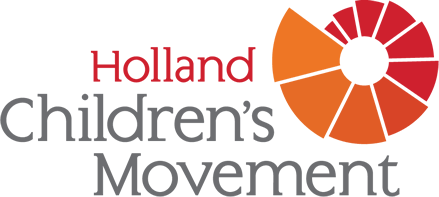THE LATEST
CATEGORY
- Blog (1)
- Legislative Scorecard (8)
- Legislative Update (20)
- Public Policy (3)
- Publications (1)
Archives
Victories for Early Childhood Care & Education
2019: LB 160 - Introduced by Senator Dan Quick
Intent: LB160 is to amend the Local Option Municipal Economic Development Act by redefining economic development program to include early childhood infrastructure development for cities of the first and second class and villages. Early childhood infrastructure development pertains to early childhood education programs of recognized quality, as determined by the quality rating criteria provided under the Step Up to Quality Child Care Act.
Outcome: Passed 36-7-6 (May 15, 2019)
2019: LB 590 - Introduced by Senator Briese
Intent: LB 590 seeks to streamline the process by which Department of Health and Human Services staff verify the training and credentials of licensed childcare providers by utilizing an existing Department of Education database called the Nebraska Early Childhood Professional Record System.
OUTCOME: Passed 48-0-1 (April 11, 2019)
2017: LB 335, AM 703 – Introduced by Senator Krist
Intent: LB 335, AM 703 limits the existing childcare market rate to no less than the 50th percentile or the rate for the immediately preceding fiscal year starting on July 1, 2017 through June 30, 2019.
OUTCOME: Passed 27-14-6-2 (March 21, 2017)
2017: LB 335 –Introduced by Senator Riepe at the request of the Governor
Intent: LB 335 (Final Reading) limits the existing child care market rate to no less than the 50th percentile or the rate for the immediately preceding fiscal year starting on July 1, 2017 and for the fiscal year beginning on July 1, 2018 limits the child care market rate to no less than the 60th percentile for the last three quarters of the fiscal year or the rate for the fiscal year beginning on July 1, 2016.
OUTCOME: Passed 42-0-7 (May 11, 2017)
2016: LB 889 - Introduced and Prioritized by Senator Mello
Intent: LB 889 creates the School Readiness Tax Credit Act, a series of tiered tax credits relating to early childhood education. LB 889 as amended proposes two categories of credits that would become effective on or after January 1, 2017: a credit for early childhood programs and a credit for the early childhood workforce. The tax credits in LB 889 would be directly aligned with Nebraska’s Step Up to Quality program that is administered by the Nebraska Department of Education in coordination with the Nebraska Department of Health and Human Services.
OUTCOME: Passed 42-5-2 (April 12, 2016)
2015: LB 81 – Introduced and Prioritized by Senator Cook
Intent: LB 81 aligns ongoing eligibility for the federal Child Care Subsidy program with the Aid to Dependent Children program. If a family’s income at redetermination for eligibility exceeds 140% of the federal poverty level (FPL), the family will continue to receive transitional childcare for up to 24 consecutive months or until the family income exceeds 185% FPL. If a family’s income falls to 140% FPL or below, the 24-month time limit will not apply until the family becomes eligible for transitional childcare assistance. The bill provides that recipients of the federal childcare subsidy program may be required to contribute a percentage of their gross income as a cost-share for participation in the program.
OUTCOME: Passed 47-0-2 (May 21, 2015)
2015: LB 547 – Introduced by Senator Campbell; Speaker Priority Bill
Intent: LB 547 changed provisions of the Quality Child Care Act. The new federal Child Care and Development Fund regulations require states to establish an overall 8% increase in spending of the federal block grant on quality early childhood initiatives. This increase will be allocated among the Step Up to Quality and Sixpence programs. LB 547 also included provisions from LB 489, to allow school districts and childcare providers to partner to receive grants funded by the Sixpence Early Learning Fund. Participating childcare providers must collaborate with the school district, enroll in Nebraska’s Step Up to Quality program, and achieve a Step 3 quality rating within three years of receiving such grant.
OUTCOME: Passed 42-0-7 (May, 21, 2015)
Victories for Economic Mobility
2015: LB 89 – Introduced and Prioritized by Senator Campbell
Intent: LB 89 changes provisions relating to the Aid to Dependent Children program to provide the first increase to cash assistance for families living in poverty in nearly 30 years. The bill increased the maximum payment to 55% of the standard of need. The bill also increased the amount of gross income that is disregarded for ADC applicants to determine the level of cash assistance. Under the bill, the amount would disregard 20% of earned income during the application process, and once eligibility is established, the amount would be 50%.
OUTCOME: Passed 30-15-4 (April 23, 2015)
2015: LB 607 – Introduced by Senator Mello; Speaker Prioritized Bill
Intent: LB 607 creates and provides duties for the Intergenerational Poverty Task Force made up of both public and private representatives that shall share, examine and analyze data and information regarding intergenerational poverty in the state with a primary focus on data and information regarding children who are at risk of continuing the cycle of poverty. The task force shall create a long-range strategic plan and submit a report each year to the Governor and the Executive Board of the Legislative Council.
OUTCOME: Passed 45-0-4 (May 21, 2015)
2015: LB 627 – Introduced by Senator Mello and Prioritized by the Business and Labor Committee
Intent: LB 627 updates the Nebraska Fair Employment Practices Act to clarify and solidify workplace protections for pregnant workers. It defines reasonable accommodations for pregnant workers, provides discrimination protections for pregnant workers similar to those already provided to workers with disabilities and provides additional requirements for the Equal Opportunity Commission’s bi-annual report.
OUTCOME: Passed 45-0-4 (April 7, 2015)
2013: LB 507 – Adopt the Step Up to Quality Child Care Act
Intent: LB 507 is intended to bring accountability for the public funds invested in child care and early childhood education, to help providers who choose to improve quality, to inform parents who seek child care and early childhood education for their children, and to improve child development and school readiness. LB 507 adopts the Step Up to Quality Act, putting in place a quality rating and improvement system (QRIS) with a scale of steps from one to five. The system is available to all child care and early childhood education programs voluntarily, but participation is required for programs that receive significant amounts of public funds.
OUTCOME: Passed 42-1-2 (May 29, 2013)
Victories for Education
2016: LB 1066 – Introduced by Senator Sullivan and Prioritized by the Education Committee
Intent: LB 1066 includes provisions of LB 1004, introduced by Senator Cook, to help schools and school districts in Nebraska to implement the Community Eligibility Provision (CEP), at their option. CEP allows schools in high-poverty areas to feed all their students school meals without charge, and without the need for a meal application.
OUTCOME: Passed 44-0-5 (April 7, 2016)
Victories for Healthcare
2019: LB 15 - Introduced by Senator Blood
Intent: LB 15 creates the Children of Nebraska Hearing Aid Act. This act would allow any child under the age of 19 that needs a hearing aid to have it paid for through their insurance plan as long as the benefits paid for the hearing aid during the previous 48-months has not exceeded three thousand dollars. In addition to the hearing aid, a child’s insurance plan will be required to pay for the device, evaluation for the hearing aid, fitting, programming, microphone measurements, repairs, ear mold impressions, and auditory rehabilitation and training. An insurance company will be exempt from the act if the company can show the cost of coverage will exceed one percent of premiums collected. Small business group health plans, as defined under 44-5260 will be exempt from this act.
OUTCOME: Passed 48-0-1 (May 23, 2019)
2019: LB 433 - Introduced by Senator Hansen
Intent: LB 433 requires that a landlord return the balance of a tenant’s security deposit and a written itemization within fourteen days after the date of termination of the tenancy. Currently, a tenant must first request the balance be returned to them. The bill also provides that a tenant does not have to pay for damages that result from their removal from the unit by order of a governmental entity because it was not fit for habitation due to negligence or neglect of the landlord. This bill adds liquidated damages of one month’s rent and court costs to what the landlord already owes the tenant for violating this section, which is the security deposit balance and reasonable attorney’s fees.
OUTCOME: Passed 39-1-9 (May 24, 2019)
2019: LB 468 - Introduced by Senator Walz
Intent: LB 468 would require that no additional populations or services be added to the at-risk capitated managed care program before either January 1, 2020 or the completion of a critical evaluation proving the success of such program. As with the amendment filed, AM46, LB468 would apply only to long-term care services. As of January 1, 2017, all Medicaid eligible persons had been included in the at-risk capitated managed care program referred to as Heritage Health.
OUTCOME: Passed 43-1-5 (May 24, 2019)
2019: LB 726 - Introduced by Senator Walz
Intent: LB 726 adds language to require the Division of Medicaid and Long-Term Care of the Department of Health and Human Services and the Department of Correctional Services to establish a protocol to assist individuals who are eligible for medical parole to apply for benefits under the Medical Assistance Act.
OUTCOME: Passed 39-0-10 (May 23, 2019)
2017: LB 427 – Introduced and Prioritized by Senator Vargas
Intent: LB 427 would broaden this accommodation to include breastfeeding mothers who are students in our schools. LB 427 also requires public, private, denominational or parochial day schools, which meet the requirements for legal operation under Nebraska law, to provide for private or appropriate facilities for milk expression and storage for student mothers. The intent of this accommodation is for schools to provide a sanitary and appropriately private setting for student mothers to express milk and to store such milk. This could include a school nurse’s office, an empty classroom, or any similar setting, which allows for privacy and is consistent with the ability for the schools to monitor and supervise students.
OUTCOME: Passed 31-7-11 (May 2, 2017)

